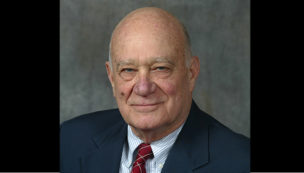May is “Older Americans’ Month.”
Folks objected when it was called “Senior Citizens’ Month.”
They objected more strenuously when they were referred to as the “elderly.”
Preference is strong for the anthropological affirmation of “Elders.”
Indeed, Theodore Roszak celebrated older Americans in his book “America The Wise.”
He argued that as Americans got older they, their nation, and the world, would be better.
What does it mean to be older in 2018?
Recently, I had a chat with Natalie from Great Neck who said to me: “Age is just a number, and mine is unlisted.”
I’ve known Natalie since she was my Hofstra student in the early 1970s. She was among the large group of women who returned to college after childbearing and child-rearing (sometimes being at the college at the same time, occasionally even in the same courses, as teenage daughters).
The difference was that these adult women were our best students as was demonstrated in publications by the late Hyman Lichtenstein (of Roslyn) and psychologist, J.R, Block.
Most of these women, like Natalie, were then in their 30s and 40s. That’s no age at all; but because they came to college in relative maturity, they were highly motivated and disciplined.
They were super achievers at the time, and their positive qualities continued to propel them to active and fulfilling lives.
In Natalie’s case (whatever her unlisted number is), she has been an innovative cultural planner and leader on Long Island. She continues to spearhead programs and remains a highly attentive citizen. although she no longer draws an executive’s salary.
Theodore Roszak would be proud of her.
As with many of the so-called “Gray Tsunami” (folks turning 65 at the rate of 10,000 a day) journeys of discovery and activism can become enriched as one gets older.
For a few years, I carried around an essay that proclaimed: “Eighty is the new 50.”
But after I turned 80 I warned younger folks that “80 might only be the new 79.”
As someone has said – it could have been that great elder Benjamin Franklin – “It’s not the number of years in your life, it’s the life in your years.”
Never in human history have people lived so long or so well.
In the late 20th century, people over 85 were referred to as “the oldest old.” Now, in 2018, they are merely the “old old” because they have been replaced by folks over age 100 (America’s fastest growing demographic is the newly designated “oldest old.”)
Fortunately for our society, Maggie Kuhn, founder of the Gray Panthers, lived until she was 90.
When she was forced to retire at age 65 in 1970, she used 25 years of life as one of the world’s foremost advocates for elder activism and power.
She had earlier participated in President Kennedy’s 1961 White House Conference on Aging. Ms. Kuhn was on the arc of history as a peace advocate, warning against nuclear weapons, opposing the Vietnam War, calling for racial reckoning, and to “reverse the cultural tendency to treat old people like children.”
She also inspired “Raging Grannies.”
I especially liked Kuhn’s Gray Panther motto of “Age and Youth in Action.”
She called for active engagement across the age spectrum, with many intergenerational connections.
These themes from decades ago were reinforced for me on last week’s trip to Northern California. I read columnist Nick Hoppe essay in the San Francisco Chronicle, “Find a friend who’s older than you.”
He wrote about the reciprocity of nurturing friendships with folks in their 80s and 90s, and how his visits to nursing homes were mutually elevating times.
While I was away, the “Wall Street Journal” in its 4/23 special “Encore” section highlighted “Intergenerational Living, Lifelong Learning for Today’s Retirees.” The article spoke specifically of ways to link “Students and Seniors.”
Purdue University professor, Sumedha Gupta, in a study of 64,000 people over age 60, found that volunteering and social interactions have significant effects on “slowing cognitive decline of aging,” and contribute to “well-being,” and to a “warm glow.”
I noted that “Chronicle Chats” was sponsoring a special forum for May 9 in San Francisco on “Should We Live Forever?”
The ad said that this will be “A compelling discussion centered around the medical potential and ethical implications of living forever.”
Our dramatic medical advances during the past half-century, including several Long Island hospitals now doing heart transplants, may make such topics relevant.
My preference would be to use 100-year old “Grandma” Edith Kaulbach as my model.
She was featured last week on Page 1 of “Williston Times” reading to school children to celebrate her centennial.
However, as I strive in that direction, I am learning more about cardiac health than I would wish.
But I have discovered a signal benefit for elders: airlines are most accommodating in providing wheelchairs to transport us from terminal entrances to plane gates, both for departures and arrivals.
You just need to make a request in advance. [Attentive support from Jet Blue made the recent trip for this elder as pleasant as it could be].



